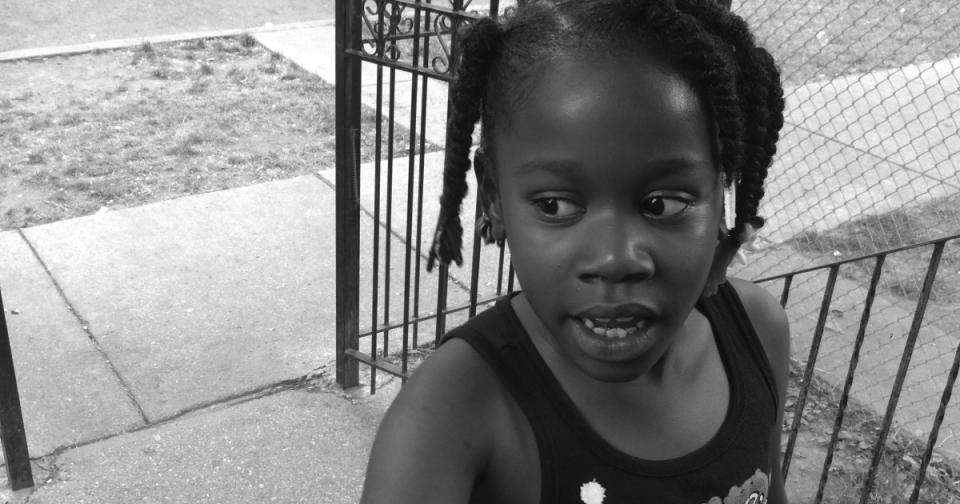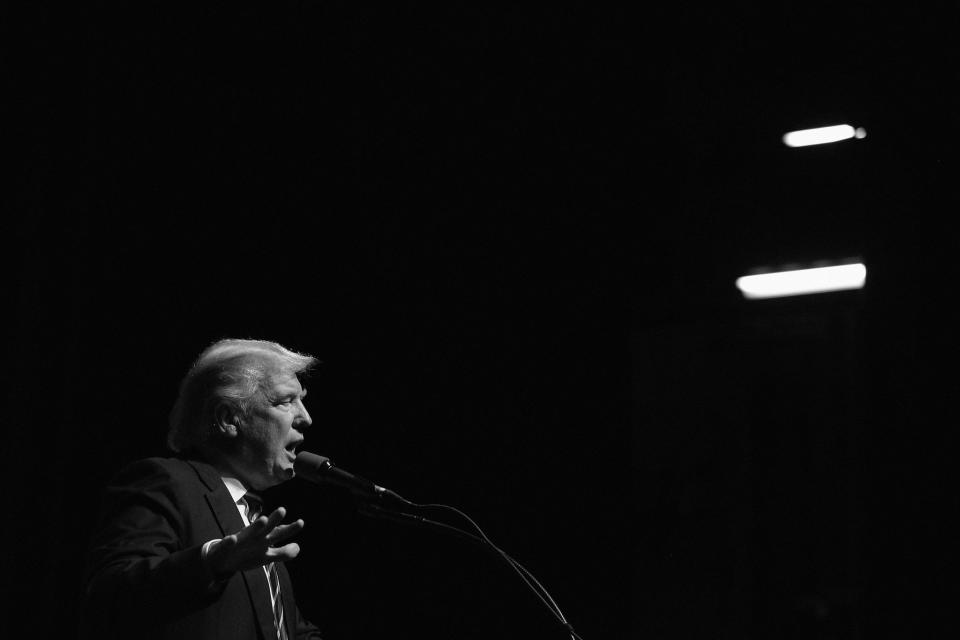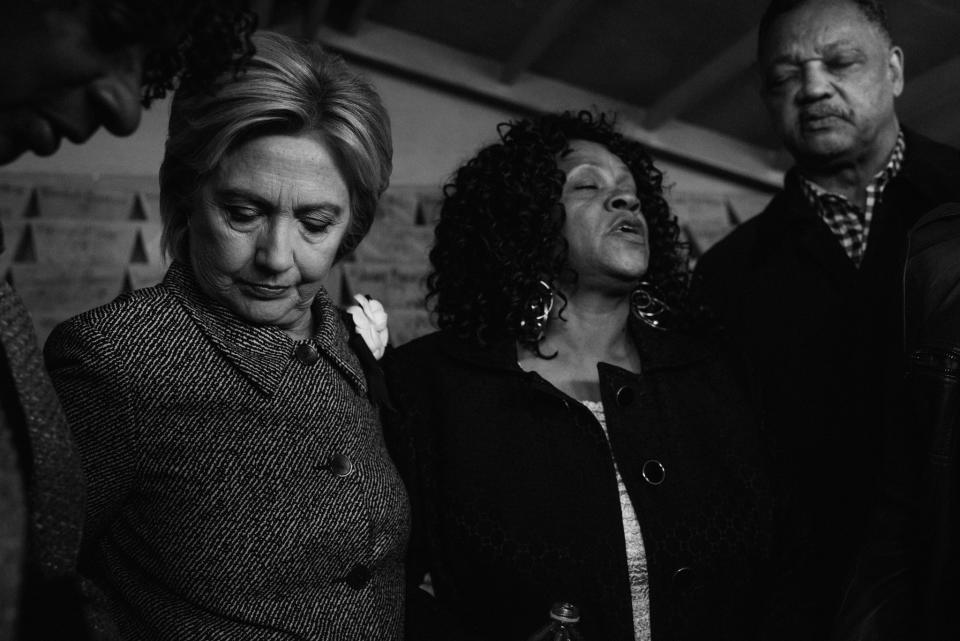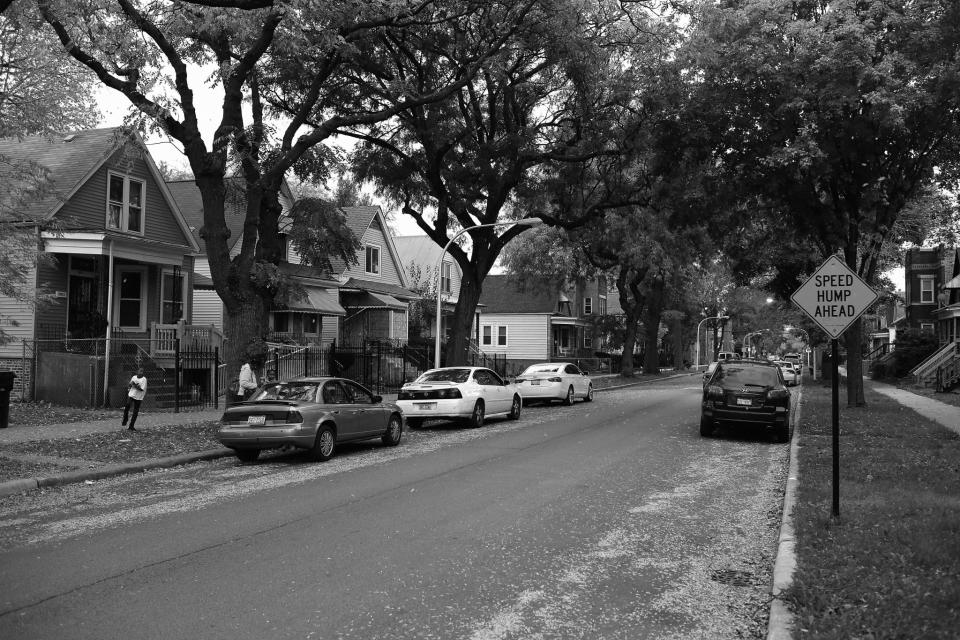16 places that shaped the 2016 election: Chicago, Ill.
By Nov. 9, the votes will have been cast and counted, there will be a winner and a loser, and the country will begin a slow return to normal. Historians will have their say on the outcome, but all of us who have lived through this election will carry away indelible memories of a shocking year in American history: of a handful of ordinary people, swept up in the rush of history; of a series of moments on which the fate of the nation seemed, at least briefly, to turn; and of places on the map that became symbols of a divided nation. As we count down to Election Day, Yahoo News has identified 16 unforgettable people, moments and places.
CHICAGO — Tacarra Morgan was playing on her front porch just after lunch on a sunny Tuesday afternoon last July when the first pops rang out down the street. It sounded like fireworks at first, but even at just 6 years old, Tacarra knew better. It was the sound of gunfire. She had heard it before, and she knew to run.
But before Tacarra could react, bullets began whizzing by from what seemed like every direction, ricocheting off the side of the two-story A-frame house where she lives in the Englewood neighborhood on Chicago’s South Side less than five miles away from President Obama’s family home in Hyde Park.
As the young girl scrambled into the house with her mother and grandmother, there was the sound of shattering glass from bullets hitting their front windows. And there were screams from the street coming from others caught in the crossfire, the result, authorities later surmised, of a gang feud. Inside the house, the family ducked for cover until the shooting finally stopped.
In the living room, Carolyn Morris, Tacarra’s mother, was frantic, but it appeared they were all OK. Looking down at her young daughter, the 44-year-old couldn’t believe how calm Tacarra was after what had just happened. “Are you OK?” she asked her.

“My stomach hurts,” Tacarra replied.
Morris reached down and lifted up her daughter’s shirt, anticipating she might find a scratch or a bruise. But there was large bloody wound on the left side of Tacarra’s tiny body where a bullet had pierced her abdomen. “All I saw was her intestines coming out,” Morris recalled in an interview. “I began screaming. All I could do was scream and scream.”
It was the kind of scene that Donald Trump has frequently invoked in recent weeks, the senseless and deadly violence that has plagued the streets of the nation’s inner cities. And Hillary Clinton has talked about it, too, citing the seemingly endless shootings here in her push for stronger gun control laws.
But even as both candidates have used Chicago’s violence for their own political purposes, the tragedy gripping this midwestern city in the heart of America stubbornly endures long after the campaigns and cameras leave. And as Election Day looms, many here wonder what difference either presidential candidate will make in turning the tide of what has been one of the deadliest years on record.

In stump speeches all over the country and in the debates, Trump has specifically mentioned Chicago, where more than 550 people have been killed and thousands others wounded so far this year in gun-related violence. The Republican presidential nominee has repeatedly likened Chicago to a “war-torn country” and suggested that Democrats, led by Clinton, have done nothing to stem the suffering of residents — primarily African-Americans — in violent, poverty-stricken neighborhoods.
“It’s like a war zone … African-Americans suffering in our country, where in the inner cities, you have no jobs, horrible education. And you oftentimes get shot just walking down the street to buy a loaf of bread,” Trump said during a campaign stop in Melbourne, Fla., last month. “I say this, ‘What the hell do you have to lose?’ Vote for Donald Trump, I will fix it. I will fix it!”
The GOP nominee has spoken about Chicago’s violence nearly everywhere — including at stops in Florida, Ohio, New Hampshire and Maine last week. But the one place he hasn’t talked about Chicago’s violence is in Chicago. In a Sept. 28 visit, Trump omitted the subject entirely when he addressed a group of Polish Americans on the city’s northwest side — far away from South Side Chicago, where the echo of gunfire has become a daily way of life.
Trump attempted to campaign in Chicago back in March — many months before he made the city’s shootings a regular line in his stump speech. But he was forced to cancel the appearance after violent protests disrupted the event, including brawls between his supporters and protesters who identified themselves as part of the Black Lives Matter movement.
While Trump’s pitch on jobs and making the streets safer is appealing, Morris, Tacarra’s mom, is deeply skeptical of the GOP nominee’s claims. She believes Chicago is nothing more than a political prop for the celebrity businessman turned unlikely presidential candidate. “He’s just saying that because he wants to win,” she said.

For her part, Clinton in February became the only presidential candidate to venture into Chicago’s South Side. She visited a makeshift memorial to the thousands of kids who have been killed in gun violence in the city in recent years, and she held a small rally, where predictably she reiterated her call for stricter gun laws to help stem the scourge of deadly shootings.
But Clinton’s message was met with some skepticism by members of the African-American community, who thought she should offer solutions beyond gun control to the South Side’s problems. Some had hoped to hear more specifics on jobs and education, according to one neighborhood activist, who declined to be named criticizing the Democratic nominee.
“That’s the twisted thing about Trump,” the activist said. “He’s saying what people want to hear. Jobs, rebuilding neighborhoods. But nobody believes him. He’s a rich guy who lies. Not to mention people think he’s a racist. Why would he care about us? He hasn’t even come here to see for himself what things are like.”
While she’s planning to vote for Clinton in November — because she believes she is more likely to help “poor people” than Trump — Morris has little faith that Clinton or any politician can have a real effect, in an immediate way, on what’s happened to her neighborhood and the lives of those around her, including Tacarra. But she is trying to remain hopeful for the future. “You can’t change what’s happened,” she said. “But you can hope for a better life.”
Back in Englewood, Tacarra is back home. Though she lost a lot of blood, the bullet that pierced her stomach narrowly missed her major organs, and she was out of the hospital within a week. She is one of at least 25 kids under the age of 13 who have been shot in Chicago’s record year of violence — though, like her, all have survived.
In some ways, Tacarra is back to normal — a spunky kid whom her family has nicknamed “Mommy” because she likes to boss everyone around. But Morris notices the heartbreaking differences between her daughter now and before that sunny day in July when a bullet nearly took her child away.

While Tacarra lives, her innocence is gone. She no longer dances around the front yard, as she used to, or lingers on the porch alone. She’s scared to go outside, and when she does, she often dashes from the car to the front door to avoid being in the open — especially in the late afternoon when the sunlight is fading and she can’t discern what lurks in the shadows. No arrest has been made in the shooting, as Chicago police have been unable to identify who was involved in the gunfight.
But it’s what happens at night that her mother hates the most — the sound of gunshots they hear popping all over the neighborhood, often pierced by her daughter’s frightened screams. Though she was calm and strong in the moment, Tacarra has nightmares about the day she was shot — something Morris thinks is made worse by a dangerous environment they feel trapped in.
“Nobody knows what it’s like to live here. People don’t get it unless you are here,” she said. “I want to relocate. I want to get out. But I’m poor. I don’t have the money. You just feel helpless.” — By Holly Bailey. Video produced by Kelli Hill.
Trump cancels rally in Chicago amid security concerns
Scenes from the March 11 Trump rally at the University of Illinois at Chicago Pavilion which was canceled by the campaign. >>>
During trip to Windy City, Trump suddenly quiet on Chicago violence
Visiting the Windy City on Wednesday, Trump did not go to see for himself the neighborhoods that have suffered the most from gun violence. At the same time, Trump notably omitted the subject at his lone public campaign stop here, where he addressed the Polish National Alliance on the city’s far northwest side. His other campaign stop, a fundraiser in the Chicago suburbs, was closed to reporters. >>>
Trump politicizes death of NBA star Dwyane Wade’s cousin
Trump, who regularly cites Chicago crime rates in his “Make America Great Again” speeches, sparked outrage when he appeared to exploit the shooting death of the cousin of NBA star Dwyane Wade in a tweet urging African-Americans to vote for him. >>>
Inside Donald Trump’s failed Chicago rally
Yahoo News’ Caitlin Dickson was at the University of Illinois at Chicago in March when a strong presence from protesters caused a Trump rally to be canceled before the candidate even took the stage. >>>
Live blog: Trump’s Chicago event canceled
Coverage from the March 11 rally and the fallout outside the arena after its cancelation. >>>
It is Clinton and Sanders people who disrupted my rally in Chicago – and then they say I must talk to my people. Phony politicians!
— Donald J. Trump (@realDonaldTrump) March 12, 2016
Dwyane Wade's cousin was just shot and killed walking her baby in Chicago. Just what I have been saying. African-Americans will VOTE TRUMP!
— Donald J. Trump (@realDonaldTrump) August 27, 2016
Crime is out of control, and rapidly getting worse. Look what is going on in Chicago and our inner cities. Not good!
— Donald J. Trump (@realDonaldTrump) July 12, 2016
Moved by the families I met in Chicago who have lost children to gun violence. Their grief is a call to action. -H pic.twitter.com/DS1YnioSDs
— Hillary Clinton (@HillaryClinton) March 15, 2016
Crowd going nuts in Chicago after @realDonaldTrump rally officially "postponed" pic.twitter.com/wObvH7zO7R
— Caitlin Dickson (@CEDickson) March 12, 2016








